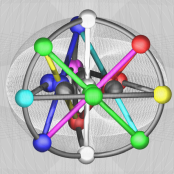



































practical inquiry regarding meaning
What does it mean to practically address the issue of existential meaning? Well, for us it means living our lives. The question then becomes, how do we live them? The way one lives one's life counts as his answer to the question, what does my existence mean? While our Project's central question addresses existence itself rather than one's personal existence, we can't address the larger question except by first going through the smaller. In other words, to fully appreciate the question of existential meaning, one must appreciate to the best of one's ability the miniscule part of existence that one calls one's own. To do this, one must practically endeavor to live a meaningful life in the most robust conception of what makes a life meaningful. In other words, since to address the question of existential meaning is to cultivate wonder, to cultivate wonder practically means to engage in those practices that increase our capacity for appreciating wonder, and this involves organizing our activities around the aim of flourishing together.
The different forms of meaningful experiences that come with flourishing lives all support a healthy relationship with the field of limitless possibilities we call existence. It's not all roses, afterall. All the unpleasant and meaningless experiences are possible, too. When facing the wonder of existence itself, the astonishment can be terrifying, overwhelming, and so on. Giving ourselves the practical goals of developing our capacity for self-control, our psychological balance, our various skills and degrees of vital engagement with others and our world, and our steady, gradual growth will help us have that healthy relationship with the sublime wonder that comes with facing the infinite possibilities of existence itself.
As we seek to explore this Project's questions through practical engagement, it will help for us to be pragmatic about it. In each case, we'll need to formulate clear, achievable goals and develop clear plans for achieving them, always leaving room to adjust our goals and plans as needed. Our plans will subdivide larger goals into a series of smaller objectives/tasks. All of this will require us to be well-informed about the landscape. Hard data is useful. For example, what do studies show contributes to flourishing, meaningful lives? What practices are most successful at allowing people to achieve flourishing, meaningful lives? How can we support each other in our endeavors? —and so on.
